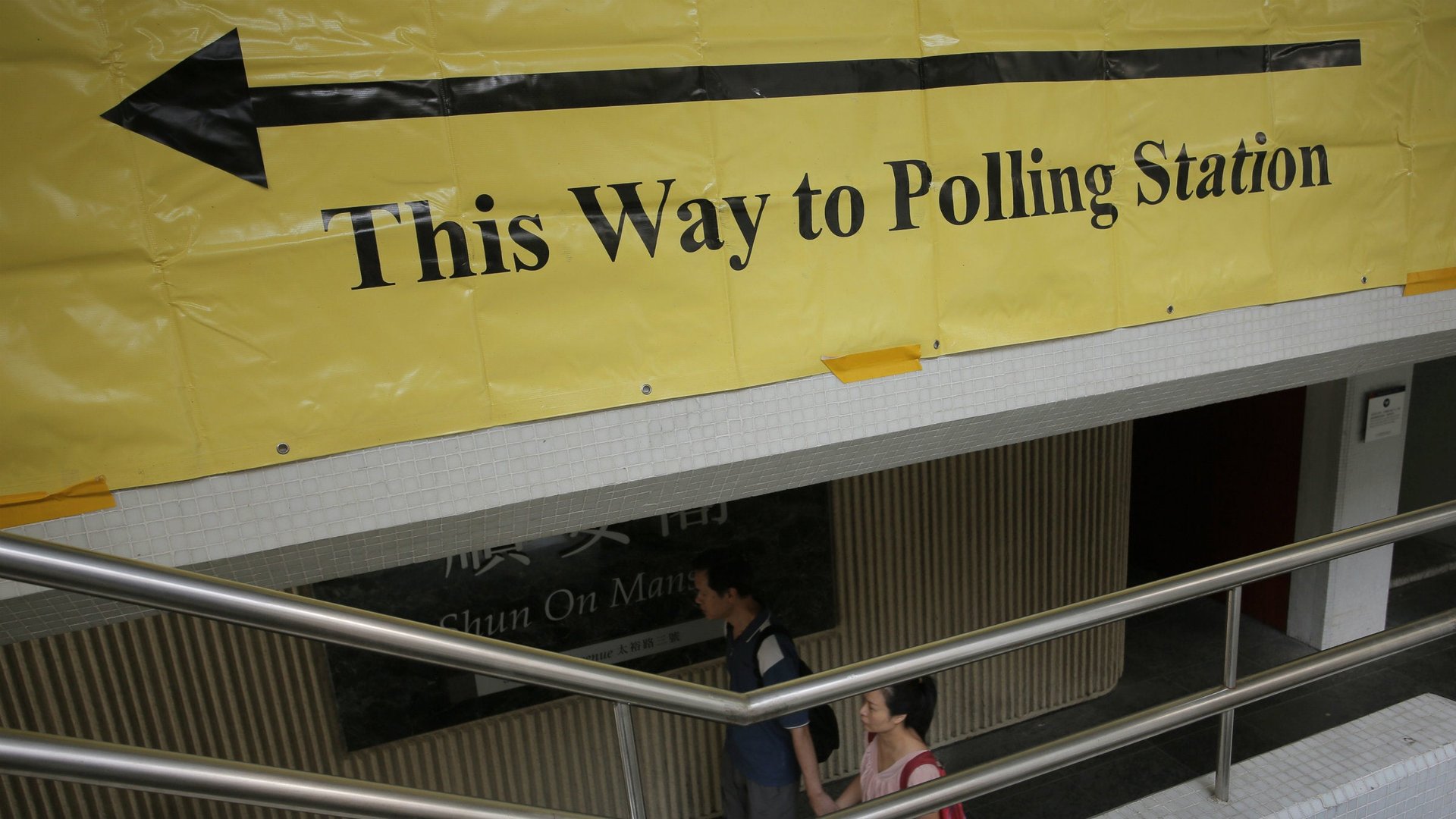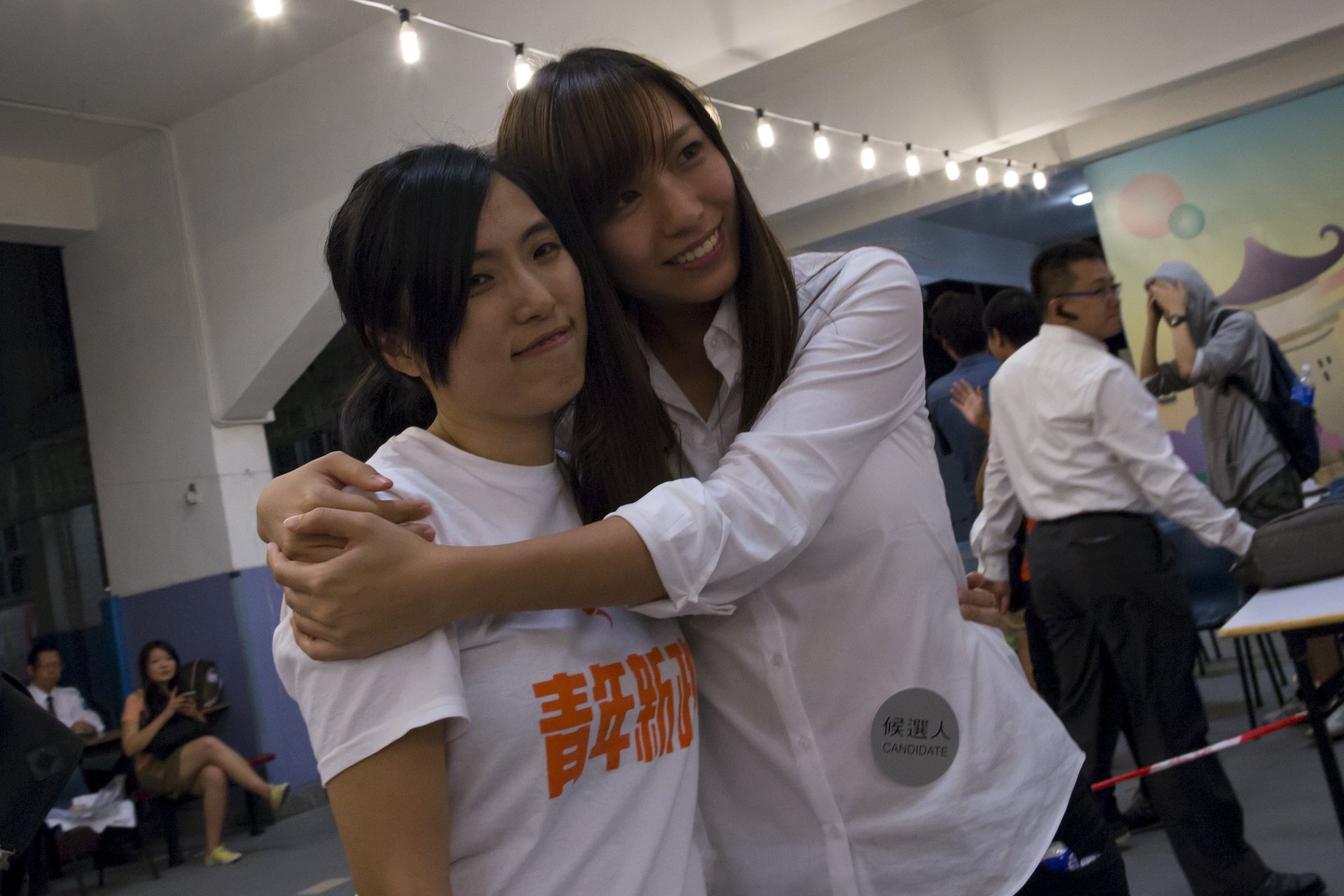“Umbrella Soldiers” win seats in the first elections since Hong Kong’s pro-democracy protests
Hong Kong’s pro-democracy protests ended last year with a bit of whimper. After over two months of student-led demonstrations that shut down the center of the city, Beijing refused to budge on the key issue of allowing Hong Kongers to nominate their own candidates for elections, leaving many wondering whether the protests had accomplished anything at all.


Hong Kong’s pro-democracy protests ended last year with a bit of whimper. After over two months of student-led demonstrations that shut down the center of the city, Beijing refused to budge on the key issue of allowing Hong Kongers to nominate their own candidates for elections, leaving many wondering whether the protests had accomplished anything at all.
District council elections today (Nov. 23) provided one answer: first-time politicians dubbed the “Umbrella soldiers,” who ran for about 50 of the more than 400 district seats, took eight of them. Hailing from parties with names like “Youngspiration,” the novices defeated several veteran politicians from pro-Beijing parties.

Their wins don’t mean that Hong Kong made a dramatic shift, politically, though. Pro-Beijing parties still dominate in Hong Kong after the elections, and occupy 298 of the total 431 seats.
But at 47%, voter turnout was a new record for a district election, signaling that Hong Kong’s citizens are more politically engaged than ever. In 2017, Hong Kong will choose a new chief executive in what is expected to be a very closely watched election.
“However insignificant our vote might be, it’s our only legitimate way to tell the people… up north what we are thinking,” one district election voter told the Hong Kong Free press. Joshua Wong, now 19 years old, said he was “thrilled” to be voting for the first time ever.
In several districts, the winner was decided just dozens of votes. Kwong Po Yin, a 29-year-old emergency room doctor and “Umbrella Soldier,” beat a pro-Beijing, 20-year veteran district council member by just 39 votes.
And in one, a pro-Beijing party won by questionable means.
In Hung Hom, on the Kowloon side of Hong Kong, elderly from nursing homes were bused in to vote by “volunteers” who were also working with the pro-Beijing candidate, the South China Morning Post reported. They appeared to be unclear who was running in the election. “They will teach us whom to vote for when we get upstairs,” one elderly voter told the paper on election day. The pro-Beijing candidate won by more than 350 votes, ousting a long-time democratic incumbent.